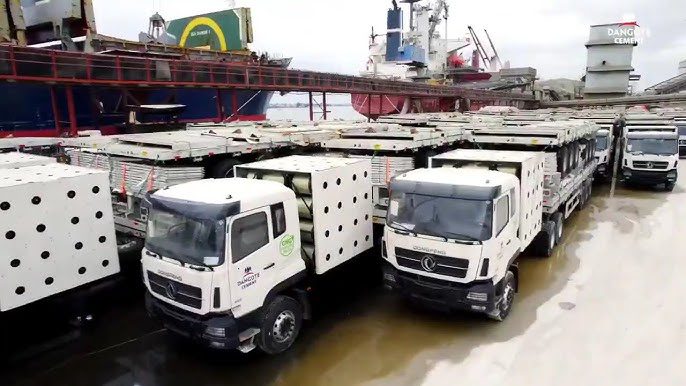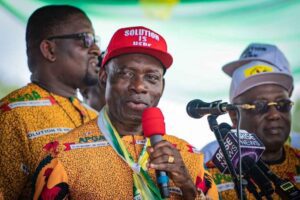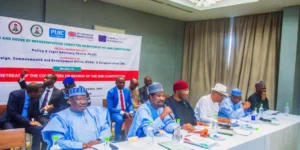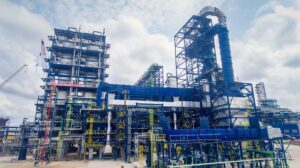Dangote Petroleum Refinery has launched a bold initiative to distribute Premium Motor Spirit (PMS), diesel, and other petroleum products across Nigeria with free logistics support, a move that experts say could significantly reduce inflation, create jobs, and transform Nigeria’s energy distribution network.
The distribution initiative targets marketers, petrol station operators, manufacturers, telecommunications firms, aviation stakeholders, and other major users. As part of this project, Dangote will deploy 4,000 Compressed Natural Gas (CNG)-powered tankers, aiming to address deep-rooted inefficiencies in fuel logistics and reduce environmental impact.
Cutting Out Middlemen, Reducing Pump Prices
Dr. Abimbola Oyarinu, a university lecturer and public affairs analyst, commended the strategy, emphasizing that it could dismantle the stronghold of middlemen—notably tanker unions who have historically stalled progress in the oil and gas supply chain.
“This initiative has the potential to dismantle the dominance of powerful middlemen, who have in the past stalled progress and held entities like the NNPCL hostage,” said Oyarinu. “If it leads to cheaper petrol at the pump, it will ease inflation considering fuel costs and exchange rates are key inflationary drivers in Nigeria.”
Ibukun Phillips, an energy analyst, described the plan as “revolutionary,” stating that it would drive down logistics costs, which currently account for up to 30% of fuel prices, especially in underserved rural areas.
“This could revive disused filling stations and ensure more equitable distribution,” she noted. “The initiative is expected to generate jobs as well, with at least 8,000 drivers to be recruited to launch the operation.”
On a national television programme, Kelvin Emmanuel, energy expert and co-founder of Dairy Hills, said Dangote’s move to cover logistics costs marks a major policy shift that could finally let Nigerians enjoy the true benefits of local refining.
“The real business marketers have been in isn’t about earning N5 to N15 per litre from PMS sales. It’s been exploiting arbitrage through substandard imports that often violate Nigeria’s sulphur content rules under the **Petroleum Industry Act (PIA),” Emmanuel said.
Emmanuel also cited regulatory failings and delayed payments as major setbacks to effective fuel distribution. He revealed that the Nigerian Midstream and Downstream Petroleum Regulatory Authority (NMDPRA) still owes N1.8 billion in unpaid bridging claims to independent marketers.
“Whether those claims are valid or not requires an independent forensic audit,” he added.
He acknowledged the concerns over potential monopoly by Dangote, but emphasized the bigger issue lies in systemic failures and inefficient fuel supply chains.
“Dangote is taking on the burden of transportation, storage, and bridging costs that should have been resolved long ago,” he said.
The refinery is currently bypassing bureaucratic bottlenecks by deploying CNG-powered trucks for last-mile delivery a temporary fix while broader infrastructure issues are addressed.
Stay tuned to 9am News Nigeria for more Breaking News, Business News, Sports updates And Entertainment Gists.
















